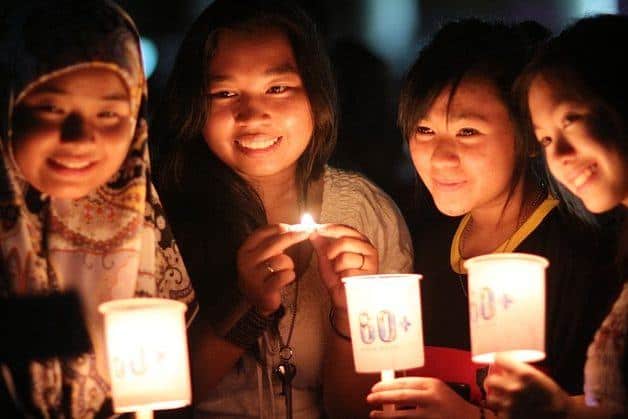The United State of Women Summit just brought together thousands of men and women to celebrate the successes made on the part of women over the last decade…
Focusing on the achievements of women and girls and communities here and around the world.
It also highlighed the issues that continue to face women, girls, and their communities at home and around the world.
We were invited to participate in a solution seminar, “Away from Slavery and Towards Human Rights: Ending Trafficking of Women and Girls” moderated by Ambassador-At-Large Susan Coppedge to highlight some of the unconventional solutions Humanity United has been part of developing. Over the past fifteen years, the anti-human trafficking community has learned much about how trafficking works and what conditions make modern slavery possible. To make a lasting impact on this issue though, we must change whole systems of exploitation and abuse. Business leaders, media leaders, civic leaders, consumers, and citizens to bring their energy and talents to this fight. Educated consumers pushing for responsible business behavior is the key. Citizens holding governments to account. As well as demanding outcomes for trafficking survivors. We must demand better outcomes. Humanity United is at the forefront of this approach, seeking better incentives, new partnerships and unconventional voices. Below are three partnerships: Better Bricks Nepal (BBN), the Partnership for Freedom, and the Guardian serving as quantifiable examples of how unlikely partnerships can lead to better solutions.
Take a look at some numbers:
52.1 million is the number of bricks now being produced in Nepal without child labor because of the Better Brick Nepal consortium.
Before last year’s earthquake, the brick industry in Nepal included 30,000 – 60,000 children producing bricks to build hotels, airports, hospitals, schools, office buildings, temples and homes across the country. Child labor and bonded labor are widespread in Nepal, and efforts to educate employers about child labor have had mixed success. Understanding what worked and didn’t work in the past, BBN created an innovative approach that incentives brick kiln owners to improve the efficiency and productivity of their factories, and simultaneously disincentivizes them from employing children. The program works directly with buyers to purchase ethically produced bricks, with kiln owners to shift their market incentives, and with families to keep kids in school and change attitudes about having them work.
The community of donors pledged four billion dollars to help Nepal rebuild. Now international donors and local consumers in Nepal can choose — a brick that was likely made with child labor or a brick we know was made by an adult.
And now only 3 minutes is needed to get a case manager using the Safe Night platform to find emergency shelter for a trafficking survivor.
To read more about the United State of Women Summit, click the link below.







Freedom United is interested in hearing from our community and welcomes relevant, informed comments, advice, and insights that advance the conversation around our campaigns and advocacy. We value inclusivity and respect within our community. To be approved, your comments should be civil.